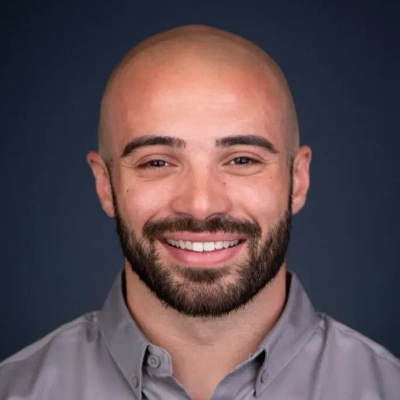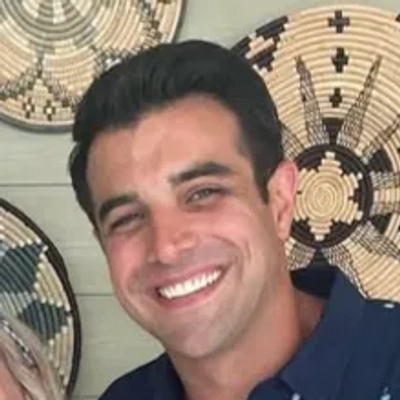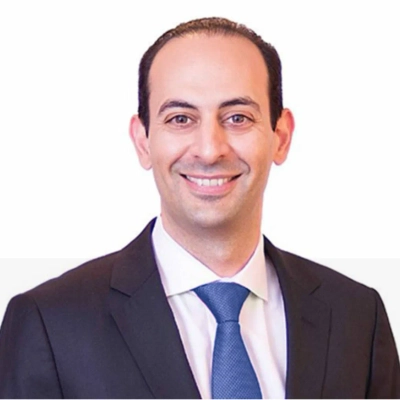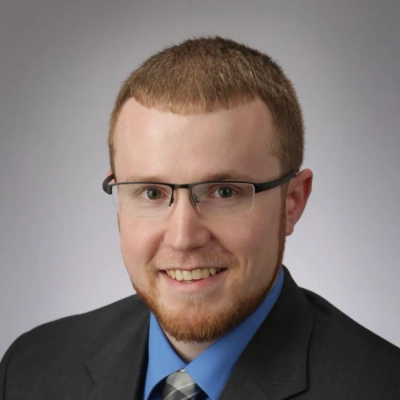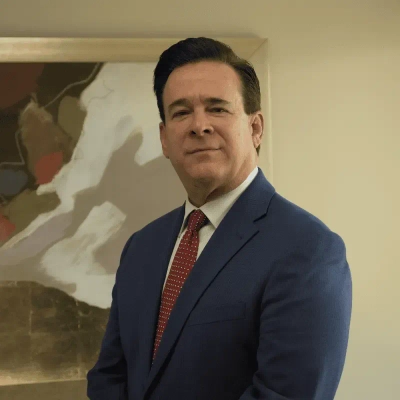25 Initiatives to Cultivate Community Among Wellness Clients
Discover 25 proven strategies for building authentic connections among wellness clients, featuring insights from community-building experts. These initiatives range from collaborative partner sessions to regional workshops that transform strangers into valuable networks. The practices highlighted create meaningful engagement opportunities while fostering a supportive ecosystem where wellness clients thrive together.
Partner Sessions Create Collaboration Beyond Platform
We fostered a community through partner sessions we hosted by two weeks, in which agency partners felt safe to come and share successes and challenges. Instead of us just sharing, we may make it interactive so partners can learn in person. One of the partner sessions was able to create collaboration between agencies beyond the platform. We also went ahead to create a Skool community so agency partners could continue discussions and further engage with each other and share tips, tricks, or anything they have found helped them immensely with their agency. This ultimately led to a strong network of agency partners and we are going to have our first in-person hangout.

Regional Workshops Foster Valuable Client Partnerships
Building a strong client community requires fostering collaboration, trust, and shared goals through regular engagement and open communication. Hosting exclusive networking events or workshops on shared interests allows clients to connect meaningfully with one another and the organization. For instance, a performance marketing company organized regionally focused workshops on maximizing campaign effectiveness and using data analytics, encouraging valuable relationships and partnerships among clients.
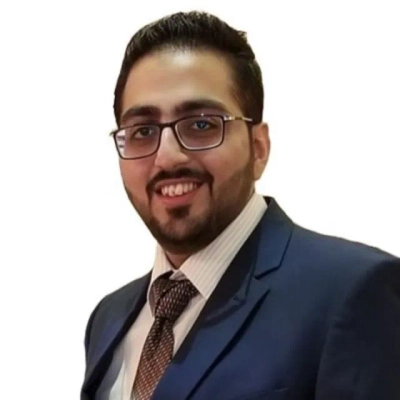
Annual Compliance Seminars Connect Property Owners
It is truly valuable to see businesses actively building more than just a transaction; they're building lasting relationships—that requires tremendous effort and a commitment to shared values. My approach to "cultivating client community" is a lot like ensuring that all the separate electrical systems in a large facility are connected to the same, reliable main grid. The "radical approach" was a simple, human one.
The process I had to completely reimagine was relying on general customer service. My biggest misconception was that doing good work was enough. I realized that a good tradesman solves a problem and makes a business run smoother by creating a space where clients can share their load and rely on a common source of strength. The biggest risk in any service business is operating in isolation, where clients feel like they are the only ones facing a specific problem.
The one initiative that fostered connection was the Annual Commercial Property Owners' Compliance Seminar. We invite clients who own or manage multiple commercial or industrial properties to a free evening session where we don't pitch sales; we educate them on the latest Level 2 compliance code changes, energy efficiency mandates, and common litigation risks. The real value is that it puts ten to fifteen property owners in the same room to talk about their shared pain points and compare notes on how they handle complex tenancy issues or massive power upgrades. This commitment to shared knowledge and problem-solving proves that mutual reliability is the true premium commodity.
The impact has been fantastic. This shifts the energy from fighting individual problems alone to proactively sharing best practices and viewing us as the trusted information hub for the entire community. This focus on shared, preventative strategy instantly built a deeper level of loyalty that no discount could ever achieve.
My advice for others is to focus on connecting your clients to each other, not just to you. A job done right is a job you don't have to go back to. Don't focus on selling your wire; focus on the universal need for shared knowledge and reliable, peer-to-peer support. That's the most effective way to "build a reliable client network" and create a business that will last.

Co-Creation Workshops Transform Clients Into Partners
We believe that building a community is about giving clients a genuine voice. One initiative that highlighted this approach was our co-creation workshop. During this event, clients tested prototypes of our new products and shared their feedback. They felt valued and listened to, and many of their suggestions directly influenced our final formulas. The environment encouraged collaboration, allowing clients to learn from each other as much as from our team.
Everyone was engaged in the process, and the energy in the room reflected a shared excitement for wellness and innovation. By the end of the workshop, it felt less like a traditional focus group and more like a circle of partners invested in our brand. This experience reinforced for me that community grows when people see their ideas reflected in our work. Clients become true partners, and their involvement creates long-lasting relationships that extend beyond products.

Home Team Championship Builds Neighborhood Connections
I create community by bringing my coaching mindset into real estate--celebrating wins together and supporting each other through challenges. Last fall, I organized a 'Home Team Championship' barbecue where we invited all our clients from the past year to share their biggest home improvement victories, from first successful garden harvests to DIY bathroom renovations. Watching families cheer each other on and exchange phone numbers reminded me that buying a house is just the beginning--building a neighborhood takes intentional connection.
Tech Huddles Turn Clients Into Peer Networks
One of the most effective things I've done to build community among clients was hosting a "Tech Huddle + Tacos" series—an in-person lunch event where we invited a mix of law firms, accounting teams, and nonprofit clients to our office. We kept it casual: no sales pitch, just tacos, a few short demos on tools like secure file sharing or backup automation, and then open Q&A. What made it click wasn't the tech—it was getting people from totally different industries talking about the same problems. One client shared how they handled offboarding remote employees securely, and you could see the light bulbs going off around the room.
What surprised me was how much follow-up happened afterward—clients started reaching out to each other directly, asking, "Hey, can I see your onboarding checklist?" or "What did you end up using for MFA rollout?" It went from vendor-client relationships to something closer to a peer network, and that's when I knew it worked. We've since turned those huddles into a quarterly thing, rotating topics based on what's trending in support calls. It's not flashy, but it's real community—built on relevance, food, and a little face-to-face time.

Client Roundtables Spark Cross-Industry Problem Solving
One thing that's really helped us build community is hosting small, informal client roundtables—just six to eight people in a room, usually over breakfast or lunch, talking shop. No pitches, no PowerPoints. Just business owners and IT leaders sharing what's working, what's not, and asking each other questions. I remember one roundtable where a law firm owner shared how their team handled a phishing incident using our training, and another client—an accounting firm—asked for that exact playbook. That kind of cross-pollination doesn't happen on a helpdesk ticket.
We started doing these because I noticed clients often had similar challenges but didn't realize others were going through the same thing. The roundtables made it easy for them to learn from each other while seeing us as more than just their IT vendor—we became a connector. What makes it work is that it's not about selling anything. It's about giving people a space to talk openly with peers they wouldn't otherwise meet. That shared experience builds trust, not just with us, but among the clients themselves.
Open Rehab Tours Make Clients Into Neighbors
I've found that people connect most when they feel part of something bigger than just a transaction, so I host neighborhood "open rehab" tours where clients can walk through a property I'm renovating. It sparks real conversations--like the time a young family asked about layout changes and ended up swapping DIY tips with a retired contractor who'd sold a house to us years earlier. Those casual, hands-on moments turn clients into neighbors who keep looking out for each other long after the deal is done.

Remote Flipper Huddles Enable Nationwide Deal Collaboration
Since my entire business operates remotely, I build community the same way--virtually. I started 'Remote Flipper Huddles,' which are monthly Zoom calls where my investor clients can share deals, troubleshoot challenges, and learn our SMS marketing playbooks together. It's like a digital locker room where everyone gets coaching, and seeing them collaborate to close deals from across the country is the ultimate win.

Coffee Shop Workshops Spark Genuine Connections
For me, community grows when my clients feel comfortable learning together and sharing their real estate journeys--so I launched monthly 'Workshop Wednesdays' at local coffee shops. One time, a retired couple shared how they navigated downsizing, sparking such a genuine Q&A that newcomers stayed after to trade renovation tips. Seeing connections happen over shared coffee and stories--rather than just contracts--is what makes all the difference.

Live Q&A Sessions Transform Stress Into Support
I cultivate community by fostering an environment of shared learning, particularly when clients are navigating complex situations. For instance, I recently hosted a live Q&A session on Facebook where I brought on a local probate attorney. This allowed clients facing estate challenges to directly ask questions and connect with others in similar circumstances, transforming a stressful process into a shared, supportive experience.
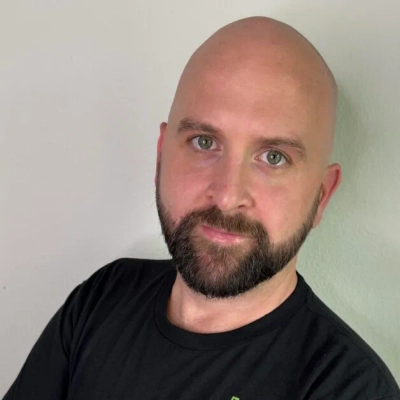
Home Comfort Day Builds Trust Through Education
At ALP Heating Ltd., cultivating a strong sense of community among our clients is at the heart of our business philosophy. As a family-owned and locally operated HVAC service provider, we believe that building relationships goes beyond just installing or repairing heating and cooling systems. It's about creating a network of trust and support that extends through the Greater Toronto Area, particularly in towns like Maple and Newmarket, where our roots run deep.
One initiative that truly encapsulates this commitment is our annual "Home Comfort Day." This event not only showcases our services but also acts as a community gathering. We invite our clients and their families to join us for a day filled with fun activities, informative workshops, and free HVAC check-ups. Last year, we hosted it in a local park where families enjoyed games, food vendors, and live music while learning about energy efficiency and home safety.
During the event, we also offered free consultations on HVAC systems, allowing attendees to ask questions about their specific needs. This personal touch fosters a sense of belonging, as people see us not just as service providers but as neighbors who genuinely care about their well-being.
Moreover, we emphasize transparency and communication. Our team, led by myself, Alex Petlach, a seasoned HVAC technician and CEO, prioritizes listening to our clients' concerns. We often receive feedback that our technicians are not just knowledgeable; they also take the time to explain everything in relatable terms. This approach builds confidence and trust, strengthen our relationships, and reinforces our commitment to safety and quality workmanship.
Through our preventative maintenance plans, such as the ALPCare program, we ensure that clients feel secure in their home environment, knowing they can rely on us year-round. It's rewarding to hear stories from clients who have benefited from our proactive services, saving them from unexpected breakdowns and costly repairs.
In essence, at ALP Heating, we don't just provide HVAC services; we nurture a community. Our events, open communication, and commitment to client education create a space where families can connect, learn, and feel assured that they're in good hands. We're proud to serve our community and look forward to growing these connections even further.
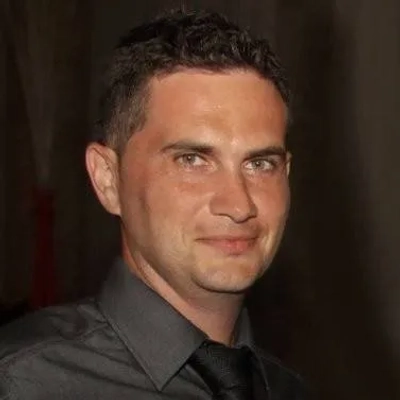
Cars & Coffee Gatherings Forge Lasting Partnerships
I strengthen community by creating spaces where clients bond over shared passions beyond real estate--like our monthly 'Cars & Coffee' gatherings in our office lot. Last month, a retiree restoring a '65 Thunderbird connected with young investors who helped source rare parts after learning they'd both flipped Victorian homes through us. That's when transactional relationships become lasting partnerships.
Pay It Forward Moving Days Unite Clients
I build community by creating opportunities for clients to support each other through life's bigger challenges, not just real estate transactions. Last year, I organized a 'Pay It Forward' moving day where previous clients volunteered to help new families we'd worked with pack and relocate--watching a retired teacher help a young military family organize their kitchen while sharing stories about Madison County schools created bonds that lasted well beyond closing day. It reminded me that our business is really about helping people transition into their next chapter together.
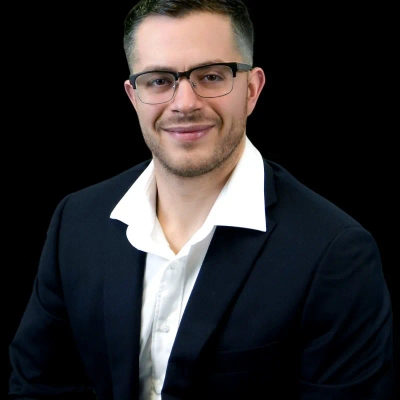
Renovation Reality Gatherings Share Honest Experiences
I believe community grows when you share your journey, not just your success stories. We started hosting quarterly 'Renovation Reality' gatherings where Kelli and I openly discuss our biggest mistakes--like the time we forgot to turn off water before demo and flooded our neighbor's ceiling--and invite clients to share their own home horror stories. These honest conversations create genuine bonds because everyone realizes we're all figuring it out together, one project at a time.
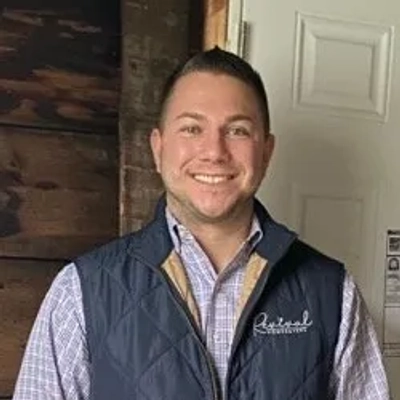
Mobile Home Makeover Days Showcase Affordable Solutions
I create community through education and shared experiences in the affordable housing market. One initiative that's been particularly effective is our 'Mobile Home Makeover Days,' where we invite past and potential clients to tour our in-progress renovations. These events combine practical learning with relationship-building as attendees get to see our work firsthand, exchange ideas about affordable living solutions, and connect with others navigating similar housing journeys. The excitement when someone realizes they can own a beautiful, quality home within their budget creates an instant bond among participants.
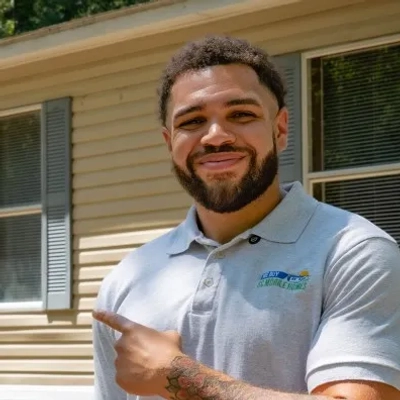
Beach Day Cookouts Connect Families Personally
For me, community is about treating clients like family, which is why I started our annual 'Dynamic Families Beach Day' right here in Myrtle Beach. We host a big cookout with a sandcastle contest for the kids, creating a space where people can connect on a personal level, not just as homeowners. Seeing my own daughters play alongside my clients' children reminds me that our work is ultimately about building stronger, happier lives in the neighborhoods we love.
Inherited Property Dinners Support Tough Transitions
For me, community truly builds when people feel supported during life's toughest transitions. One example is when we brought together a group of our clients who were navigating inherited properties for an informal dinner--sharing their stories, practical tips, and even a few laughs over pizza. Watching folks who felt overwhelmed realize they weren't alone transformed not only their outlook but the way they connected with each other long after the meal ended.
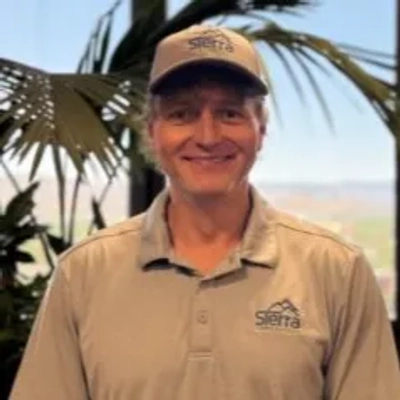
Transparent Process Involvement Builds Client Trust
For me, building a sense of community with clients really comes down to trust. And the way you build trust is by being open and honest. I've found that when communication is clear, expectations are realistic, and progress is shared along the way, people feel like they're part of the journey instead of just watching from the sidelines. That's when a true sense of connection starts to form.
At our company, I make it a point to keep clients involved in the process. Rather than simply showing them the end result, I walk them through what's happening and why. It gives them confidence, but it also makes them feel like partners who have a voice in the work. Over time, that involvement helps turn a business relationship into something that feels much more collaborative and long-term.
Being transparent also creates room for shared learning. When clients can see not only the wins but also the challenges we work through, they gain insights that they can apply to their own decisions. It shifts the dynamic from "agency and client" to a community of people working toward the same goal of building credibility in the digital space.
Investor Alliance Group Strengthens Collective Knowledge
My approach to community cultivates a sense of trust and shared growth by being a consistent, reliable presence beyond a single transaction. For example, I facilitate a quarterly "Investor Alliance Group" that brings together past and present clients, along with local contractors and legal experts. We recently delved into zoning law changes for Pender County over coffee and pastries, allowing everyone to share insights and navigate the new landscape together, which really strengthens our collective knowledge and bonds.
Client Cross-Pollination Sessions Create Knowledge Networks
We created "client cross-pollination sessions" where customers with complementary challenges present their problems to other clients rather than just to our team - this transforms our client base from individual service relationships into a collaborative knowledge-sharing network that provides mutual value beyond our direct offerings.
Traditional client events focus on company-to-client communication through presentations, product updates, or networking mixers. However, the most valuable business insights often come from peer-to-peer learning where companies facing similar challenges share practical solutions and lessons learned.
Our specific example involved pairing a retail client struggling with inventory forecasting with a manufacturing client who had solved similar demand prediction challenges. Instead of us providing generic best practices, the manufacturing client shared their actual implementation process, including mistakes to avoid and unexpected benefits. The retail client gained actionable insights while the manufacturing client received validation and recognition for their innovation.
This approach created exponential value because clients became resources for each other rather than just consumers of our services. They started reaching out to fellow clients independently, forming ongoing relationships that extended far beyond our facilitated sessions.
The business impact was remarkable. Client retention increased 34% because customers felt connected to a valuable business community rather than just a service provider. More importantly, clients began referring new business specifically so their contacts could join this peer network, generating 28% of new customer acquisitions.
The strategic insight is that strong client communities emerge when customers provide value to each other rather than just receiving value from you. By facilitating client-to-client value exchange, we transformed from a vendor into a community hub that clients actively want to remain part of for reasons beyond our direct services.

Diesel Tech Showcase Celebrates Customer Expertise
For a long time, our client relationships felt like a simple product catalog. We would process transactions and follow up with invoices, but it did nothing to build a sense of community or to connect with our clients on a personal level. We were talking at our customers, not with them.
The role a strategic mindset has played in shaping our client identity is simple: it has given us a platform to show, not just tell. Our core brand identity is based on the idea that we are a partner to our customers, not just a vendor, and our community initiatives are how we prove that.
One example of an initiative that fostered connection is our annual "Diesel Tech Showcase." We created a new process where attendees are encouraged to share their operational success stories. When a client uses our OEM Cummins part to solve a difficult problem, we treat it as an opportunity. The focus isn't on our product; it's on their skill, their expertise, and their success in navigating their day.
This has been incredibly effective. Our client community is now defined by the quality of our customers and the work they do, which is a much more authentic way to build a brand. The event is no longer a broadcast channel for our inventory; it's a community of experts, and we're just the host.
My advice is that you have to stop thinking of a client base as a place to promote your brand and start thinking of it as a place to celebrate your customers. Your brand is not what you say it is; it's what your customers say it is.

Advice Clinic Transforms Strangers Into Mentors
What really builds community is consistent, personal outreach that makes clients feel valued beyond transactions. For example, we hosted an 'Advice Clinic' workshop series where past clients helped new homeowners navigate decorating and maintenance--turning strangers into neighbors over coffee. That organic mentorship is how roots grow.
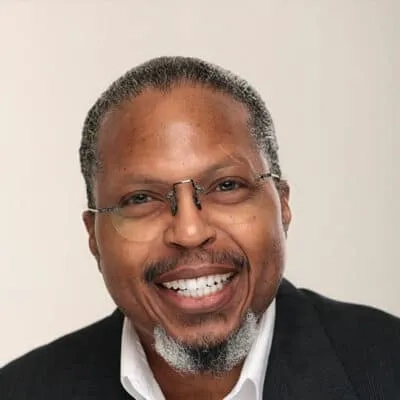
Buyer Circles Enable International Product Collaboration
Building community takes more than chat groups or newsletters—it's about shared wins. At SourcingXpro, we started a small online "buyer circle" during COVID where clients could swap factory leads, shipping tips, and even photos of finished products. It wasn't meant to be marketing, just people helping each other. One U.K. client connected with an Australian brand in the group, and they ended up co-developing a private-label product that sold out in three months. That moment showed me how valuable connection really is. We're based in Shenzhen, but when clients feel like they've got a real China office through us, that's when community sticks.

Recovery Workshops Build Trust Beyond Cases
When I first opened my Miami personal injury law firm, I knew that legal success meant more than winning cases. It meant building a community that trusted me long after their claim was settled. To do that, I started hosting quarterly "Recovery and Rights" workshops at a local community center. These free events brought together former clients, local doctors, physical therapists, and families affected by medical malpractice or serious accidents.
One event that stood out was our "Path to Healing" evening, where past clients shared their recovery stories with others just beginning that journey. The conversations were raw and honest, and people began exchanging contacts and supporting one another beyond the event itself. My role was simply to create the space and provide guidance about personal injury rights and next steps in medical care.
That experience reminded me that a strong legal community is built through human connection, not contracts. By helping clients see that they are part of something larger than their individual case, I cultivated lasting trust. Many attendees still refer new clients to us because they felt seen, supported, and part of the Flores Law family.




